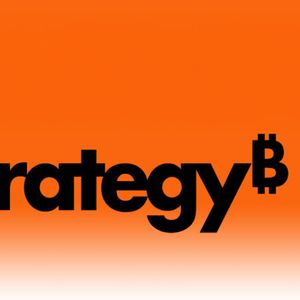"Debanking" has become a buzzword in Washington lately . The term refers to a controversial practice where crypto companies and other businesses have been cut off from banking services, allegedly due to pressure from federal regulators. Many in our industry have dubbed this " Operation Chokepoint 2.0 ," comparing it to a previous Obama-era initiative that discouraged banks from serving certain legal but high-risk industries. The issue has sparked heated debate, with multiple congressional investigations examining whether regulators improperly pressured banks to deny services to crypto firms and other businesses. I'm testifying before Congress about it today because my company experienced it firsthand, despite being a federally-regulated bank ourselves — and because debanking is widely misunderstood. To address this threat to American values, we first need to understand what happened. Rather than regulators issuing clear, transparent rules on who banks can serve, debanking operates through a shadowy and democratically unaccountable process whereby regulators warn banks against serving certain types of customers not based on the individual risk they pose, but on hostility or bias towards an entire industry. Banks, facing the threat of enforcement action, penalties, or worse, are left with no choice but to comply. And law-abiding individuals and businesses are cut off from basic banking services, which can be devastating. Here's what it looked like for us: in June 2023, we received an urgent call from our bank of two and a half years. Despite an established banking relationship — we were even in active discussions about expanding into new partnerships — the bank abruptly informed us they were closing our account in 30 days because it was not comfortable with our crypto clients’ transactions, even though we told them the funds at issue were client payments for custody fees, and that these were fully documented as part of our rigorous compliance process. Our contact refused to provide any further explanation or allow us to speak to the bank’s risk management team.Read more: Nic Carter - Why You Should (Still) Care About Silvergate The irony was stark: we ourselves are a federally chartered bank , regulated and supervised by the OCC, subject to the same stringent capital, liquidity, and risk management expectations as any other national bank. Not once in the course of our partnership had our banking partner ever raised an issue with our account. We were a great bank customer — well-capitalized, well-regulated and well-run. Yet out of the blue, our bank abruptly cut us off with no explanation or recourse. While we were eventually able to find banks willing to partner with us, the impact of being nearly shut out of the banking system was devastating. It was extremely disruptive to our business and our clients, and contributed to the difficult decision we made in 2023 to lay off 20% of our workforce. And we weren’t alone. Legitimate American businesses across our industry found themselves scrambling for basic banking services, spending time and resources on workarounds rather than innovation and growth, causing major disruption and even driving some out of business. Regulators' actions amounted to a de facto ban on banking the crypto industry, made even more destructive by its seemingly arbitrary enforcement — no one knew why some firms retained access while others were cut off, creating a climate of constant uncertainty. To be clear, if regulators had enacted such a major policy decision through proper channels, like formal notice-and-comment rulemaking, that would be one thing. But no rule was ever proposed, publicly debated, or subjected to legal scrutiny. Nor did Congress ever pass legislation to authorize the choking off of large parts of an industry from the federal banking system. History shows us that without a permanent fix, this will happen again. Just over seven years ago, the FDIC apologized for the first iteration of “ Operation Choke Point” — a concerted campaign to cut off banking to industries disfavored by regulators — promising to retrain its examiners. Fast forward to 2023, and those same debanking efforts, this time with a different politically disfavored industry, occurred again. Without action, Operation 3.0 is only a matter of time, and any industry could be the next target. So how can we prevent this from happening again? Congressional oversight, like the hearing I will testify at today, is crucial to uncover the facts and hold the agencies accountable. Congress must also act to establish real safeguards: consider legislation requiring banks to provide fair access to banking services within the bounds of existing law, require agencies to annually certify that they are not pressuring banks to discriminate against lawful businesses, establish Inspector General whistleblower hotlines at the OCC, FDIC and Federal Reserve to report examiner misconduct, require banks to provide written explanations for account terminations, and mandate clear appeals processes. Read more: U.S. Regulator Told Banks to Avoid Crypto, Letters Obtained by Coinbase Reveal Such protections would ensure that no federal regulator can abuse its authority to quietly choke off law-abiding individuals, companies, and industries again. More immediate steps that the new Administration and Congress can take are to rescind the January 2023 joint banking regulators' guidance that served as the nail in the coffin for many crypto businesses, and rescind the OCC's interpretive letter 1179 , which imposed arbitrary pre-clearance requirements that effectively locked many banks out of crypto activities. These aren't just procedural changes — they are essential to protect American innovation and ensure democratic accountability. When regulators have to own their decisions and defend them before the public and the courts, the backroom pressure campaigns end and transparency and rule of law prevails. The scrutiny should be on implied threats from bureaucrats, not on legitimate businesses following the rules. Until these reforms are implemented, everyone is at risk.



















